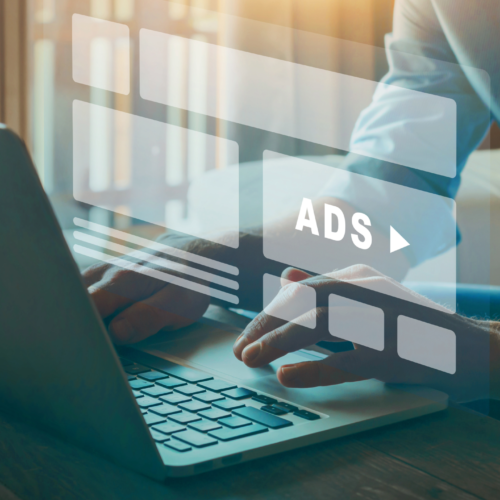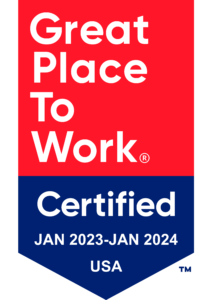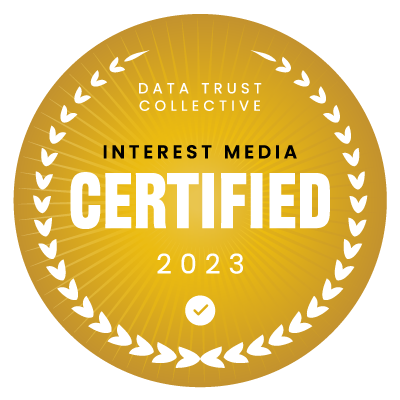
Does Your Old Content Need a Tune-Up?
- Learn why you shouldn’t remove old content, and doing so could actually hurt your SEO, and a few “SEO myths” debunked by Google.
- Your older website content could become even more relevant and helpful to your audience by giving it an update and adding new information.
- How to assess the quality of your old content and update it the right way.
The Deceptive Myth of “Old Content” and Search Engine Rankings
“…felt useful to do some myth-busting…and hope it spreads the word this [deleting old content] isn’t something we’re somehow telling people to do.” – Danny Sullivan, Google’s Search Liaison
Somehow, there is a pervasive myth that Google search doesn’t like old content, and that your website will rank better with fresh content. The myth purports that old content can hurt your SEO and should be removed.
Recently, CNET took the step of deleting thousands of its older pages. An internal memo from the company revealed they thought the move would improve their search results placement. This move caught Google’s attention and they promptly spoke out about this misconception, calling it not true.
In fact, it can be harmful to remove old content if it’s beneficial to your audience, according to those on Google’s search team.
“Are you deleting content from your site because you somehow believe Google doesn’t like ‘old’ content?” wrote Danny Sullivan, Google’s Search Liaison, in a PSA posted to X (formally Twitter). “That’s not a thing! Our guidance doesn’t encourage this. Older content can still be helpful, too.”
Are you deleting content from your site because you somehow believe Google doesn’t like “old” content? That’s not a thing! Our guidance doesn’t encourage this. Older content can still be helpful, too. Learn more about creating helpful content: https://t.co/NaRQqb1SQx
— Google SearchLiaison (@searchliaison) August 8, 2023
The buzz around the move by CNET also caught the attention of John Mueller, Google’s Senior Search Analyst.
“Delete what you don’t want to keep – regular maintenance and cleaning up is always good. Just don’t assume that deleting something only because it’s old will improve your site’s SEO magically.” – John Mueller
The bottom line is that there is no “penalty” that will hurt your search rankings for having old content.
Is Your Older Content Providing Unique Value?
“Similarly, keep in mind that just because something doesn’t get a lot of views (eg, old news, obscure information) doesn’t mean it’s not helpful for those who do view it. Focus on the unique value, not on the age, view-count, etc.” – John Mueller, Google
As the above quote points out, age and view count are not the most important factors to Google when it comes to ranking content. Quality and value carry a lot of weight.
These are part of Google’s E.A.T. factor for quality, which stands for expertise, authoritativeness, and trustworthiness.
Google rewards content that demonstrates knowledge or skill in a particular field, coming from a website that has built authority as a go-to source of information for that topic. Third, Google looks to see that there is accuracy, legitimacy, and transparency in published content.
Simply put, is your content helping people who go to Google search looking for answers? Google wants to send visitors sources of information for a user’s query – that’s the bottom line.
In a nutshell, make sure all of your content – new or old – is providing unique value.
Never Lose Sight of Your Content’s “North Star”
The “North Star” guiding your content should always be to create quality content.
First, ensure that your content is unique (i.e. original), useful, helpful, informative, and accurate. It may also be educational.
Next, also make your content “user-friendly.” This can be content that is any of the following: Easy to consume, entertaining, inspiring, and shareable.
You can improve your content by adding your own research or analysis, or including such information by others and citing your sources.
Another goal, you as a content creator should focus on, is establishing your company, brand, or product as an authority. You want to position yourself as the go-to source of expertise and trustworthy information. Your content should help people solve their problems.
Despite the legendary quote from the 1992 film “Glengarry Glen Ross,” starring Alec Baldwin and Jack Lemmon and an all-star cast, you should not “always be closing.” Instead, you should either “always be informing” or “always be entertaining” – preferably both. Build loyalty first with your audience, then ask them to buy.
What Should You Do About Aging Content on Your Website?
“It can really be the case that sometimes we just have content that looks to us like it remains to be relevant. And sometimes this content is relevant for a longer time. – John Mueller, Google
The first question to ask about any aging content on your website is: Is the content still relevant, helpful, and useful?
If the answer is yes, there is no reason to delete pages just because they’re old. As we already established above, Google doesn’t care if a website’s pages are old – what matters is if the content at page contains is helpful.
Are those pages still getting traffic? You don’t want to delete any pages that are driving views or have important backlinks elsewhere.
When assessing whether your content is still relevant, helpful, or useful – if the answer is “no” – the remedy may simply be to update the page rather than remove it.
Let’s take a look at how you can improve your aging content pages rather than deleting them.
Update Any Content that is No Longer Relevant
“It’s not uncommon that people might freshen out-of-date content & that might be helpful for the particular piece of content but this is completely different from just delete it because it’s old and makes your whole site seem old (it doesn’t).” – Danny Sullivan, Google
Things change and you need to review your website content regularly to make sure all the information it contains is still relevant.
Old content with outdated information, even just a little, is no longer helpful because it is no longer 100 percent accurate. Rather than remove this old content, the fix is to simply go through it and revise anything that is out of date or inaccurate.
Revise Rather Than Start From Scratch
Revising old content also makes sense versus creating new content from scratch on a new page. Why? Because older pages are likely already ranking in Google, might already have backlinks, and you don’t want to lose any authority that you have gained.
Link From Older Content to Newer Pages
“Rather than delete historical content under the assumption ‘old’ is not helpful or useful, it might make sense to simply link from older content to newer updates. But deleting ‘old’ because you somehow think it makes you ‘fresh’ – it doesn’t.” – Danny Sullivan, Google
Another way you can deal with information that has changed is to link from your older pages to newer pages that have the most current or updated information. In some cases, this may be more expedient than doing an overhaul on an existing webpage. You can add some text that stands out in some way to indicate some particular information is outdated while providing a link to the updated version.
Rather than delete historical content under and assumption “old” is not helpful or useful, it might make sense to simply link from older content to newer updates. But deleting “old” because you somehow think it makes you “fresh” — it doesn’t.
— Google SearchLiaison (@searchliaison) August 14, 2023
What to Do With Pages About Obsolete Products?
Pages about obsolete products or information could be one instance in which it might make sense to delete content. However, even though this product may no longer be available or has become obsolete, the information could still be useful to people who still own and use this product.
A good way to update these pages is to refer people to a newer version of the product or a product replacement.
However, if there is no newer version or replacement product, and if these pages are bringing you questions that you derive no benefit from answering – it may be time to remove these pages.
What if Even an Update Won’t Make Your Content Relevant?
There is a slim possibility that something could have changed so drastically that there is nothing you can do to update it and make it relevant.
Again, assess whether this page brings you traffic with inherent value.
On the other hand, some obsolete content could be potentially harmful by making you appear uninformed. This could undermine your expertise and authority. If this is the case, you might want to remove the content.
Content Mistakes that Can Hurt You
Instead of worrying about how old content is, the more important factor is that your content maintains a certain level of quantity. Revise or remove the following:
- Low-Quality Content: Content that is substandard, vague, misleading, or simply filler because you think you have to have “something.” If the content is not useful in some way, it has no place on your page.
- Inaccurate Information: Google considers some inaccurate information harmful, so pay heed to accuracy to avoid being flagged or blocked for misinformation.
- Irrelevant Content: Content that is no longer relevant can also confuse users, as well as make you appear uninformed.
- Duplicate Content: Having the same content on different web pages could confuse users. Worse, it could hurt your search engine rankings for all of them.
What to do after revising your old content pages
After you have updated your old pages, be sure to re-upload your site map to Google and other search engines so that they will crawl your site sooner and index your revised pages.
Alternatively, in the Google search console specifically, you can paste in any page URLs you’ve recently updated and click “request indexing” so that Google re-crawl those pages and pick up your changes.
Key Takeaways
◊ According to Google, there is no “penalty” associated with old content that will hurt your search engine rankings.
◊ Age and view counts are not the only factors in ranking content, and Google focuses on the unique value of content and how helpful it is to its viewers.
◊ Your main goal should always be to create quality content that helps your viewers by being useful, helpful, informative, and accurate. “Always be informing” or “Always be entertaining” your audience – preferably both.
◊ E.A.T. (expertise, authoritativeness, and trustworthiness) is what Google looks for in ranking content it directs its search users toward.
◊ When assessing your aging content, ask whether it is still relevant, helpful, and useful. Are these content pages still getting traffic?
◊ Regularly review your older content to make sure it is still relevant and accurate. If not, revise the content to bring it up-to-date.
◊ If you feel some content pages are no longer relevant, helpful, or useful – the best solution may be to revise those pages and bring them up to date rather than removing them or creating new pages from scratch.
◊ An alternative to updating older content pages is to link from those pages to updated information on newer pages.
◊ Pages about obsolete products or information could be linked to newer product versions or replacements. However, in some cases, it may make more sense to remove pages about obsolete products or information if it is no longer relevant and an update will not help.
◊ When updating your content will still not make it relevant, and may even make you appear uninformed, it could undermine your expertise and authority. If so, consider removing the content.
◊ Some types of content can hurt your search engine rankings, causing it to be flagged or blocked, so be sure to revise or remove any: low-quality content, inaccurate content, irrelevant content, or duplicate content.
◊ After revising older pages with updated information, resubmit your site map or individual pages to search engines to re-crawl to index your changes.
Interested in Learning More?
Check out our Free White Paper on The Unbeatable Nature of Intent-Based Advertising or reach out to one of our brand promotion specialists! We pride ourselves on being able to bring advertising partners the exact consumers they’ve been looking for.












